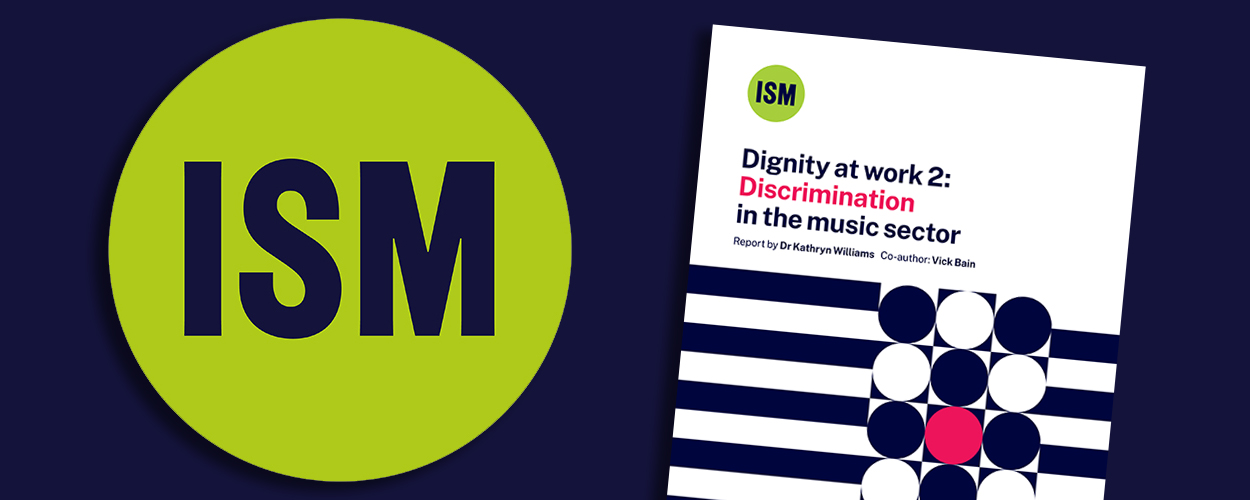This website uses cookies so that we can provide you with the best user experience possible. Cookie information is stored in your browser and performs functions such as recognising you when you return to our website and helping our team to understand which sections of the website you find most interesting and useful.
Business News CMU Digest
CMU Digest 02.10.22: ISM, Mr Probz, PRS, MLC, Pollen, Meta
By Chris Cooke | Published on Sunday 2 October 2022

The key stories from the last week in the music business…
The UK’s Incorporated Society Of Musicians said that the “prevalence of discrimination and inappropriate behaviours in the music sector has increased”. In a new report, the ISM said that a recent survey of 660 music industry practitioners “painted a picture of unsafe workplaces where perpetrators face no repercussions and there is a scandalous lack of action by contractors and employers”. And, it added, things haven’t improved since an earlier study in 2018, despite there being much more discussion in recent years within the industry about tackling discrimination and harassment. The report also set out a number of recommendations for both industry and government regarding how changes to workplace practices and equality laws could address many of the ongoing issues. [READ MORE]
Dutch artist and producer Mr Probz sued Sony Music again in an ongoing dispute over royalty payments. The producer’s core grievance relates to international income generated by the tracks he licensed to the major, and the deductions allegedly made by Sony’s international subsidiaries before his artist royalty was calculated. He argues that, under his licensing agreement, his royalty – 20-50% of streaming monies depending on the market and other factors – should have been calculated based on the ‘at source’ income, ie what the local Sony subsidiary is paid, not what Sony Netherlands receives after that subsidiary has taken a cut. The producer successfully sued in the Dutch courts on this dispute in 2020. As part of that ruling Sony was ordered to hand over more information about revenues generated by the Mr Probz recordings and, the new lawsuit says, “new facts and circumstances have emerged” as a result, prompting the new litigation. [READ MORE]
Collecting societies PRS and MLC both made announcements about new data initiatives. UK-based PRS announced a new music rights data portal, due to launch next year, which will make it easier to access information about the songs it represents, including songwriter credits, key codes like the ISWC and IPIs, and information about what recordings contain each song. US-based MLC announced a new scheme involving music distributors, in which it will make it easier for those distributors to see what recordings on the streaming services have never been matched to songs. The aim is that those distributors can alert the artists behind the recording who may have also written the song, but have never formally got the song into the system, meaning they are missing out on royalties. [PRS STORY] | [MLC STORY]
A class action lawsuit was filed in the US against collapsed ticketing and events company Pollen. The litigation has been initiated by a former employee and, if granted class action status, could benefit anyone who worked for the firm in the US as of June this year. The lawsuit claims that Pollen failed to pay its American employees twice in the weeks prior to its UK-based parent company falling into administration. It also allegedly failed to pay insurance premiums without alerting its employees, meaning they were unaware their health insurance had lapsed. If it gets to court, the case would put the spotlight on what was happening behind the scenes at Pollen, which fell into administration just months after announcing that it had secured $150 million in new investment. [READ MORE]
Meta called for the lawsuit filed against it by Epidemic Sound to be dismissed. The production music firm sued the Facebook and Instagram owner in July, claiming that Meta has failed to give it access to the rights management tools that would allow it to block unlicensed use of its music in videos posted to the two social media platforms. It also alleged that Epidemic-owned music has appeared in the music clip libraries on Facebook and Instagram without licence. But Meta said that Epidemic has failed to provide any details about where its music is appearing on the Facebook and Instagram platforms, and without that information its lawyers can’t respond in any meaningful way to the copyright infringement claims. The “vague assertions and glaring omissions” in Epidemic’s lawsuit, it added, should be grounds for the litigation to be dismissed. [READ MORE]





